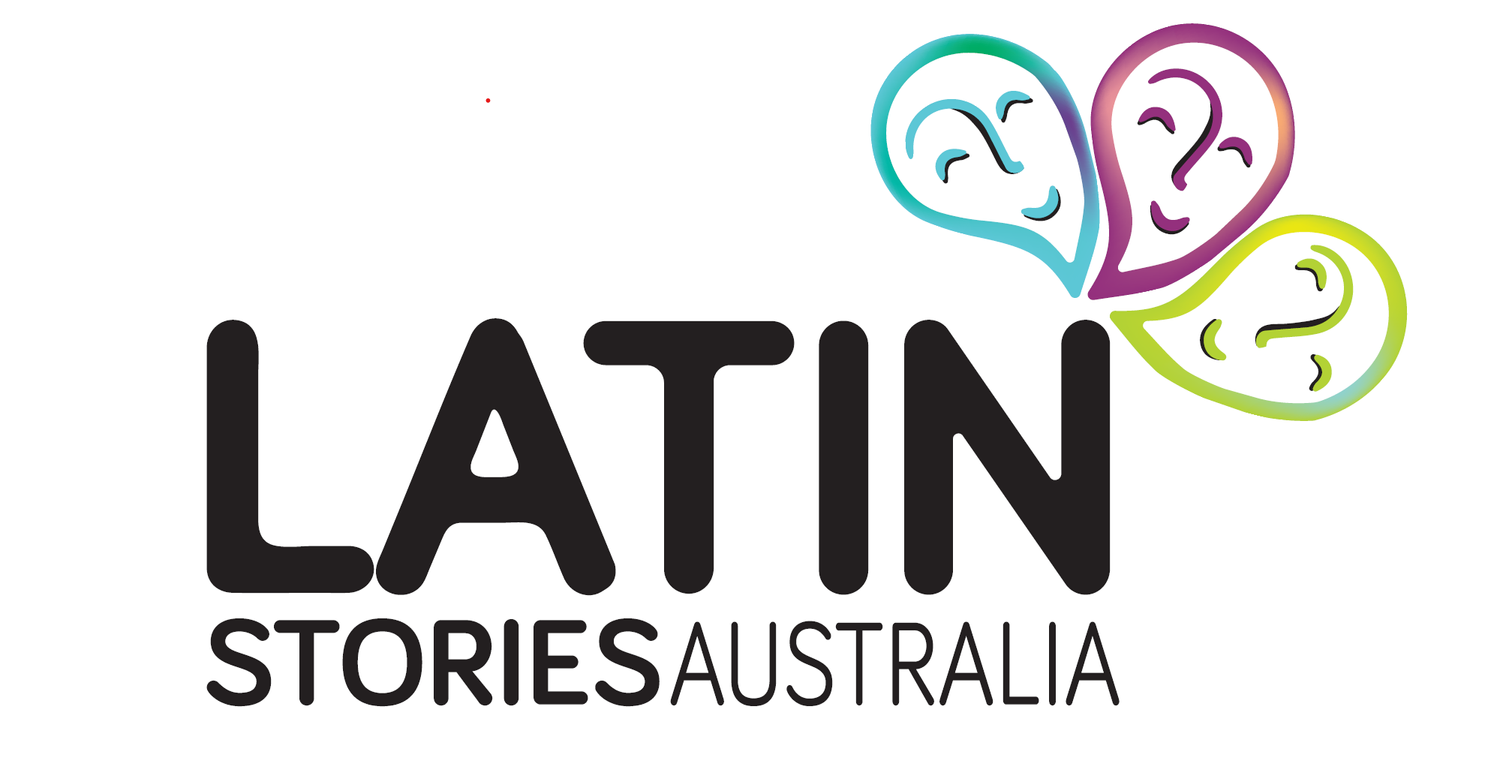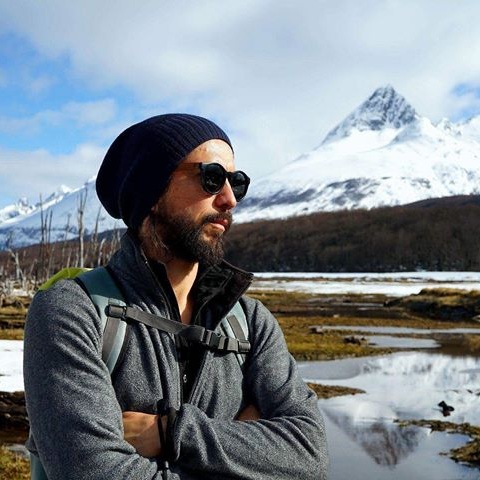Juan Pablo Guerrero
“Even if people tell you that you will manage and you will make it, that story needs to come from within”
Juan Pablo Guerrero
Country of origin: Colombia
Occupation: Field Training Officer at Casey Station in Antarctica working for the Australian Antarctic Division. State of Residency: Antarctica (not a state per se). Australia is responsible for this part of the Antarctic continent and it is home for now. Favourite place in Australia: Mt. Kosciusko. Upon Arrival: Surprised by the care-free and relaxed nature of people - No worries, at all!
By Trini Abascal
Juan Pablo is currently a Field Trainer Officer for the Australian Antarctic Division based for the 2018-2019 season at Casey Research Station in Antarctica. He is also an outdoor educator, entrepreneur, traveller, salsa dancer, adventurer and ukulele player. He has been involved in the development of young people for about 20 years in Colombia, Australia and around the world. In Australia he has been an outdoor educator and an expedition leader travelling and educating young adults on expeditions all around the world.
TELL US YOUR STORY
Juan Pablo in Antarctica
I came to Australia in 2009 study a Masters degree at Griffith University. In order to do that, I needed to improve my English, so I enrolled fist at an English course at Langports Brisbane. Whilst taking the English course two things happened: the most amazing group of people surrounded me as mates (some became my Australian family) and I fell in love with the Australian lifestyle.
After I finished the English course and during Uni days, I did all sorts of random jobs, like most of us have to. The first few months were rough as my English wasn’t good enough yet. I remember interviewing for a small mopping company that provide its mopping services to shopping centres and airports to clean their facilities at night. I did NOT get the job. Yes that’s right, not good enough even to mop a floor. I finally got a job as a kitchen-hand in a Spanish restaurant when I was down to my last 120 bucks, just enough cash to pay for either food or rent that week! After that, I did random things to get money to pay for my living expenses. I did door-to-door selling; this gave me free English education on Australian slang (mostly related to getting out of my client’s properties in very colourful language). I also taught babies (who hardly could walk) how to play soccer. Eventually, I got involved with the climbing and outdoor scene in Brisbane and l was able to go back to my passion of climbing, hiking and outdoor activities.
After I finished Uni, there was a beautiful girl and a huge desire to keep exploring other challenges in Australia. So I made the decision that I was here to stay. I went back to the education field, working for the Queensland Education Department in multiple capacities, helping to set up and run the adventure-based educational facilities, and later working as outdoor educator. After a few years of “re-learning the ropes in a new country” I became the Senior Leader and National Leader Trainer for an educational expedition company running trips to 32+ countries around the world for educational organisations all across Australia, New Zealand and California (US). I travelled the world facilitating educational programs for young people and training leaders to become the best leaders they could be.
On my search for new challenges, the opportunity and timing matched perfectly to put an application in to work for the Australian Antarctica Division. After one of the most rigorous and extensive selection processes I have experienced and out of 3500+ applicants, I became one of the new 2 Field Training Officers recruited this season to work in Antarctica for the whole year (summer and winter seasons). And so the story goes… here I am, at the beginning of the 2019 winter season writing this to you from the Icy continent.
CHALLENGES
Juan Pablo with his sister and mum in Cuba
Uncertainty - I didn’t know I would manage, to me that is the definition of a challenge or an adventure, the pursuit of an endeavour difficult enough that the outcome becomes unknown. Nobody told me I would manage any of it: that I would find the money to buy food, pay for my Uni fees, pass difficult subjects at Uni or that I will get over sad times and loneliness. I had to create that rhetoric myself. I had to tell myself that story.
Distance from family - When a family member dies and you get that phone call at 2 am giving you the news, because they don’t want you to wake up the following day and find it out by social media, you feel like you want to drop it all and get out. When your nephew or niece grow too quick, when your mum gets sick and sad and you feel hopeless and selfish on the other side of the world growing and exploring but missing out on happy and sad moments, the real moments with family. That is a conversation hard to reconcile.
Re-learning - Moving countries means moving mindsets. The beauty of an accent is the mix of the rules of one language (tone and pronunciation) with the words of another (grammar and vocabulary). That makes us migrants unique. Migration creates a broader vision of the world, and a dynamic approach to different situations. We can see topics from more than one angle and from various ends of the spectrum. Now, getting there and understanding that not everybody has the same vision, that I am bias and that I only see the world from my perspective, it can be quite frustrating. As migrant you have to un-learn and re-learn an incredible amount of rules in order to accommodate and adjust to a new life and a new culture. Our brains cope with an extreme re-wiring process that is not for everyone.
CONTRASTS
Partying - Parties in Colombia aren’t parties until everyone from the elder to the kids are dancing. The concept of a dinner party or go to a pub to socialise (read talk) and drink WITH NO DANCING was a bit of a shock. Here, if you go dancing to a club, there is no talking. There is no way you can talk over a club sound system without yelling your drink into your companions ear. So, partying had to be reformulated to adjust to the Aussie party life.
Laid back style - I actually feel like Australian and Latin American cultures have a few things in common. I have been fortunate enough to meet lovely people during my journey in Australia and I don’t think I could have chosen a better country to move to. Latin America has had a history of difficulties, in a very strange way these has created a laid back, resilient and lovely culture that Latinos portray around the world (in my case at least). This laid back style is similar to what I have found in my Aussie mates. So, in this regard, my life in both Colombia and Australia is pretty similar.
Food - People normally ask: Do you miss the food, the Colombian food? And the short answer is yes. We have really yummy food in Colombia and all across Latin America. However, in Australia you can have 7 different kinds of cuisine for dinner a week and you can do that for a month without repeating countries’ cuisine. How cool is that? Yes the tamales aren’t the same, I know. But, Fish & Chips aren’t as good in Bogota neither.
PIECE OF ADVICE
Self-talk matters - Read my first challenge. Even if people tell you that you will manage and you will make it, that story needs to come from within. So, if you say to yourself that you will make it or you won’t, in both cases you will be right.
Find what makes you stand out - We aren’t here to be average. Like Superman when he left Krypton and move to Earth, we as immigrants have powers. We are survivors. So, find your superpower.
Honest decision-making - Staying is not necessarily winning and going back is not losing neither, and vice versa. So be gentle with yourself and make a decision that suits your life conditions and try to stick to it.
Juan Pablo paragliding in Tasmania
IN THE NEXT FEW YEARS…
To start with, Juan wants to get out alive of Antarctica. However, he would like to go back to see other parts of the icy continent. Currently, he is writing about his experience in Antarctica, and although he doesn’t know what will come out of it, he hopes to share his experience maybe through a good tea table pamphlet with good photos and some interesting questions/stories or maybe a book, who knows? He is also collecting footage and audio-visual material, as he believes that a documentary film would be interesting to make. Family is priority after he finishes the season at the Antarctica. Finally, a few mountains around the world might see him climbing and flying off their summits in the next 2 years.




